M
I
C
R
O
S
T
O
R
Y
O
F
A
R
T
........................................................
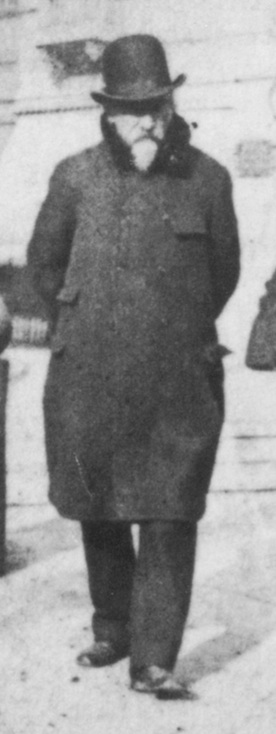
NOW COMPLETED:
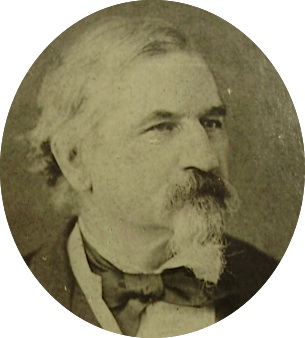
........................................................
MICROSTORY OF ART
ONLINE JOURNAL FOR ART, CONNOISSEURSHIP
AND CULTURAL JOURNALISM
........................................................
INDEX | PINBOARD | MICROSTORIES |
FEATURES | SPECIAL EDITIONS |
HISTORY AND THEORY OF ATTRIBUTION |
ETHNOGRAPHY OF CONNOISSEURSHIP |
SEARCH
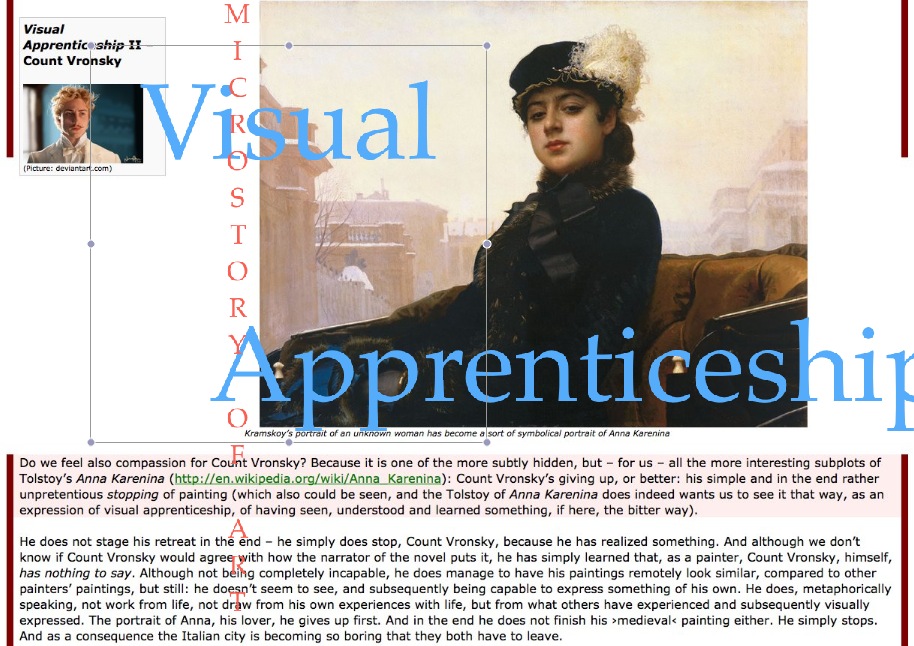
........................................................

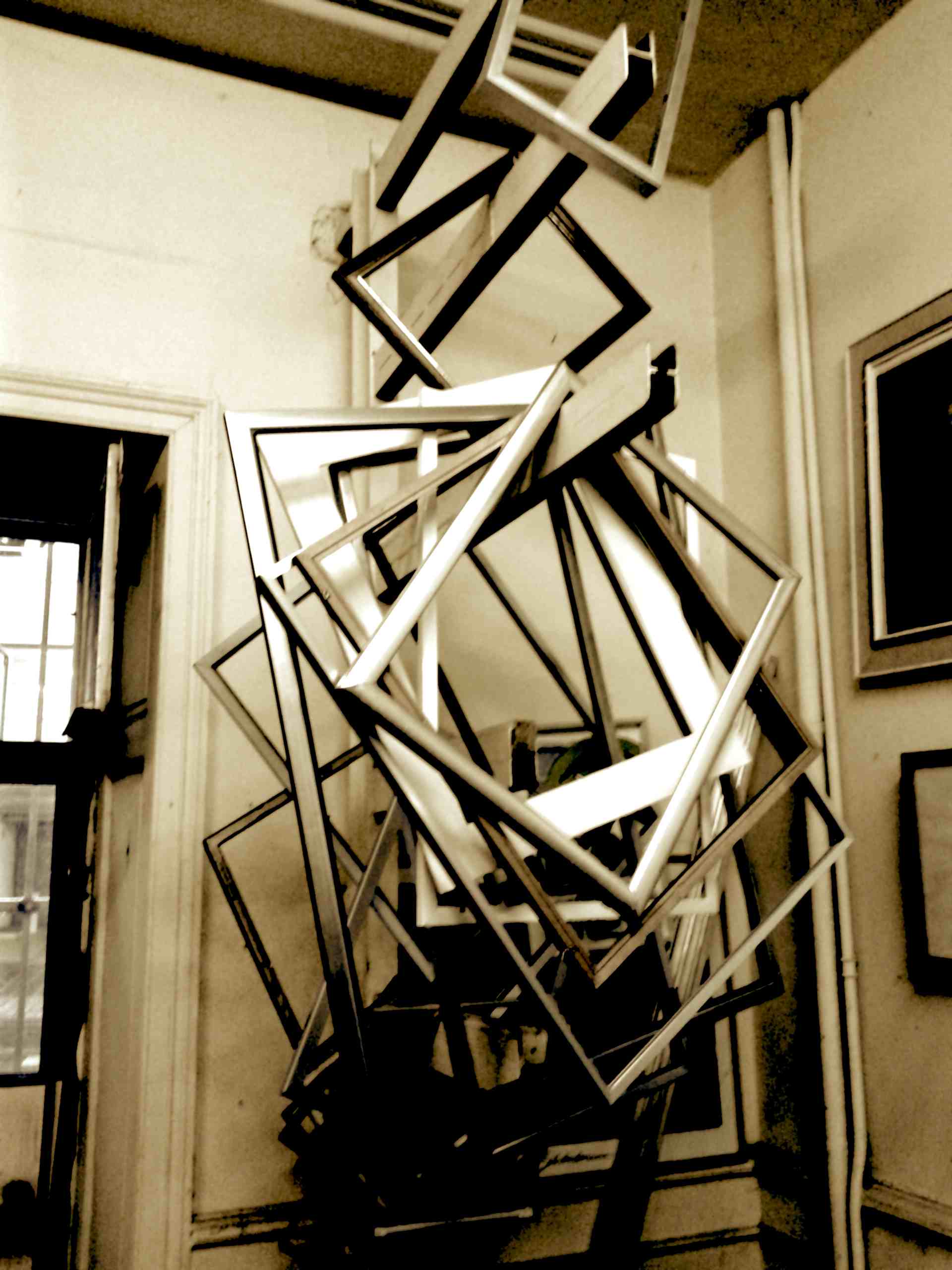
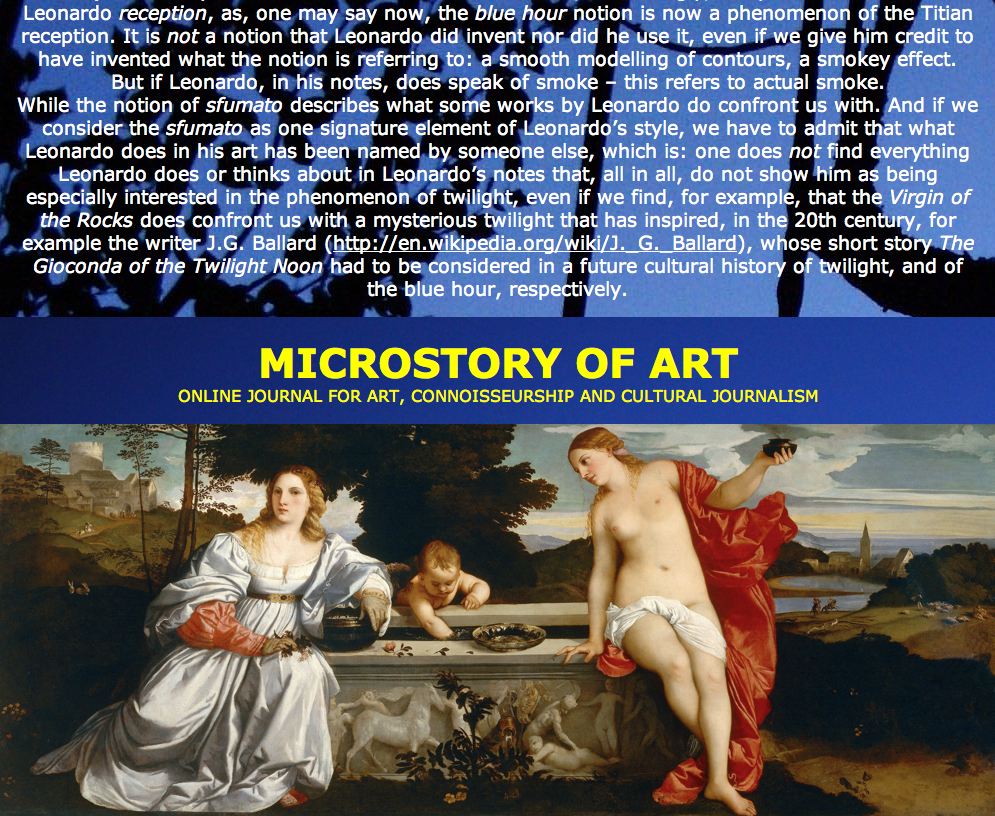
 >MICROSTORIES
>MICROSTORIES
- Richard Serra
- Martin Scorsese
- Claude Simon
- Sunshine
- Werner Herzog
- The Creation
- Marcel Duchamp
- Nino Rota
- Wölfflin and Woolf
- Hansjörg Schneider
- Kraftort Arkadien
- Visual Biography
- Schlaraffenleben
- Die Geisteswissenschaften
- The Voyeur
- Buzzword Sustainability
- Paul Verlaine
- Tao Yuanming
- New Beginning
- Seneca
- Still Lifes
- Charles Baudelaire
- Frédéric Chopin
- The Art History of Sustainability
- Wang Wei
- Solarpunk
- Historians of Light
- Lepanto
- Renaturalization
- Plates
- Snow in Provence
- Learning to See
- Picasso Dictionaries
- Peach Blossom Spring
- Picasso Tourism
- Tipping Points
- Sviatoslav Richter
- Weather Reports
- Treasure Hunt
- Another Snowscape in Picasso
- Picasso in 2023
- Dragon Veins
- The Gloomy Day
- The Art of the Pentimento
- Reforestation
- The Status of Painting
- Emergency Supply
- Punctuality
- Watching Traffic
- Zhong Kui
- How Painting Survived the 1990s
- Confirmation Bias
- Sustainability and Luxury
- Garage Bands
- Picasso and Artificial Intelligence
- Eyes of Tomorrow
- Picasso in 2023 2
- Gluing Oneself to Something
- Suburbia
- Bamboo
- Sustainability and Carpe Diem 1
- Interviews with Bruegel
- Sustainability and Carpe Diem 2
- Coffee & Sugar
- Bamboo 2
- Picasso in 2023 3
- Sustainability and Carpe Diem 3
- Cherry Orchard
- Old Magazines
- Chance
- Nick Drake
- Harlequin
- The Smartphone & the Art Book
- Atlas Syndrome
- The Kitchen
- Atlas Syndrome 2
- Consideration
- Tori Amos
- School
- Orchard Auctioning Day
- The Hundred Years’ War
- Sócrates
- Chameleon
- Nefertiti Bust
- Picasso as a Computer
- Sunflowers
- Philemon & Baucis
- Ode to the Radio
- Childhood
- Wimmelbild
- Restitution
- Nick Drake 2
- Wishful Thinking
- Sundays
- The Independent Scholar
- September
- The Fisherman by Pirosmani
- Microadventure
- Sociology
- Salvator Mundi
- Chillon
- Appassionata
- Amber
- Homer
- Berlin
- Planet Walk
- Improvisation
- Seeing Picasso
- These Nice Kids
- Robber
- The One
- The Sea Turtle
- Zoo
- Through the Hush
- Wunderkammer
- I Do Not Seek, I Find
- Shopping Mall
- Food Hamper
- The Secretary
- This Gate
- Nor Rainy Day
- House on a Hill
- Beautiful Island
- Second-hand Bookstore
- Flat
- Slap in the Face
- Serra, Wenkenpark
- Apologies
- The Bells
- Nordmann Fir
- Picasso Wanting To Be Poor
- Picasso, Pirosmani
- A Brief History of Sculpture
- 24 Sunsets
- Rusty Phoenix
- Glove
- Wintry Stanza
- A Song
- Like A Beatle
- Catching An Orange
- Solar Bees
- Permaculture

 >FEATURES
>FEATURES
- Van Gogh On Connoisseurship
- Two Museum’s Men
- Ende Pintrix and the City in Flames
- Titian, Leonardo and the Blue Hour
- The Man with the Golden Helmet: a documentation
- Un Jury d’admission à l’expertise
- Learning to See in Hitler’s Munich
- Leonardo da Vinci and Switzerland
- The Blue Hour Continued
- The Blue Hour in Louis Malle
- Kafka in the Blue Hour
- Blue Matisse
- Blue Hours of Hamburg and LA
- A Brief History of the Cranberry
- The Other Liberale in the House
- The Blue Hour in Raphael
- Who Did Invent the Blue Hour?
- Monet on Sustainability
- Velázquez and Sustainability
- The Blue Hour in Guillaume Apollinaire
- Van Gogh on Sustainability
- The Blue Hour in Marcel Proust
- Picasso and Sustainability
- The Contemporary Blue Hour
- The Blue Hour in 1492
- The Blue Hour in Hopper and Rothko
- Hopper and Sustainability
- The Blue Hour in Ecotopia
- The Hour Blue in Joan Mitchell
- Explaining the Twilight
- The Twilight of Thaw
- The Blue Hour in Pierre Bonnard
- Explaining the Twilight 2
- Picasso on Stalin
- Rubens on Sustainability
- The Salvator Mundi in Bruegel and Rubens
- The Blue Hour in Leonardo da Vinci and Poussin
- The Blue Hour in Rimbaud
- Faking the Dawn
- Frost and Thaw in Ilya Ehrenburg
- Picasso, Stalin, Beria
- Picasso, Solzhenitsyn and the Gulag
- Shostakovich on Picasso
- Hélène Parmelin in 1956
- Historians of Picasso Blue
- Picasso Travelling to Moscow 1
- The Blue Hour in Caravaggio
- Picasso Travelling to Moscow 2
- Picasso, the Knife Game and the Unsettling in Art
- Some Notes on Leonardo da Vinci and Slavery
- Picasso Moving to the Swiss Goldcoast
- The Blue Hour in Camus
- The Blue Hour in Symbolism and Surrealism
- Caspar David Friedrich in His Element
- Exhibiting the Northern Light
- Caspar David Friedrich in His Element 2
- Robert Schumann and the History of the Nocturne
- The Blue Hour in Robert Schumann
- Caspar David Friedrich and Sustainability
- The Twilight of Thaw 2
- Multicultural Twilight
- The Blue Hour in Anton Chekhov
- The Blue Hour in Medieval Art
- Twilight Photography
- The Blue Hour in Bob Dylan
- Iconography of Optimism

 >SPECIAL EDITIONS
>SPECIAL EDITIONS
- Visions of Cosmopolis
- Mona Lisa Landscapes
- Turner and Ruskin at Rheinfelden
- Painters On TV & On TV
- Spazzacamini in Art
- A Last Glance at Le Jardin de Daubigny
- The Experimental Cicerone
- A Dictionary of Imaginary Art Historical Works
- Iconography of Blogging
- Begegnung auf dem Münsterplatz
- Cecom
- Das Projekt Visual Apprenticeship
- Those Who See More
- A Fox on Seeing with the Heart
- Sammlung Werner Weisbach
- Daubigny Revisited
- Some Salvator Mundi Microstories
- Some Salvator Mundi Afterthougths
- Some Salvator Mundi Variations
- Some Salvator Mundi Revisions
- A Salvator Mundi Questionnaire
- A Salvator Mundi Puzzle
- Unknown Melzi
- Francis I and the Crown of Charlemagne
- From Amboise to Fontainebleau
- Drones Above Chambord
- Looking Back At Conques
- Flaubert At Fontainebleau
- Images of Imperial Ideology
- The Chronicles of Santa Maria delle Grazie
- Seeing Right Through Someone
- Melzi the Secretary
- Eying Glass
- A Foil to the Mona Lisa
- A Renaissance of the Cartoon
- Sketching a Family Tree
- Venetian Variations
- A Brief History of Digital Restoring
- A Consortium of Painters
- Leonardeschi and Landscape
- A Christ in Profile
- Learning to See in Spanish Milan
- A History of Gestures
- Leonardo and Josquin
- A Renaissance of the Hybrid
- Suida and Heydenreich
- The Watershed
- Three Veils
- From Beginning to End
- Connoisseurship of AI
- Twilight and Enlightenment
- The Blue Hour in Chinese Painting
- Dusk and Dawn at La Californie
- Iconography of Sustainability
- The Blue Hour in Goethe and Stendhal
- The Sky in Verlaine
- The Blue Hour in Paul Klee
- Iconography of Sustainability 2
- The Blue Hour in Charles Baudelaire
- From Bruegel to Solarpunk
- Some Salvator Mundi Documentaries
- Some More Salvator Mundi Monkey Business
- The Windsor Sleeve
- Brigitte Bardot’s Encounter with Picasso
- Art Historians and Historians
- A Salvator Mundi Chronicle
- The Salvator Mundi and the French Revolution
- The Fontainebleau Group
- The Encounter of Harry Truman with Pablo Picasso
- The Fontainebleau Group Continued
- The Windsor Sleeve Continued
- The Salvator Mundi in Early Netherlandish Painting 1
- Some Salvator Mundi Resources
- A New Salvator Mundi Questionnaire
- The Woman in Picasso
- The Yarborough Group
- Melzi, Figino and the Mona Lisa
- The Yarborough Group Continued
- A Salvator Mundi Global History
- The Salvator Mundi in Medieval Art
- The Salvator Mundi in Medieval Art 2
- The Salvator Mundi in Early Netherlandish Painting 2


 >HISTORY AND THEORY OF ATTRIBUTION
>HISTORY AND THEORY OF ATTRIBUTION
- The Mysterious »Donna Laura Minghetti-Leonardo«
- Assorted Demons of Connoisseurship
- Panofsky Meets Morelli
- Discovering the Eye of Sherlock Holmes
- Handling the Left-handed Hatchings Argument
- Visual History of Connoisseurship
- Alexander Perrig
- Connoisseurship in 2666
- What Postmodernity Has Done to Connoisseurship
- Dividing Four Fab Hands
- A Leonardesque Ambassador
- Test Cases in Connoisseurship
- A Raphael Expertise
- How to Tell Titian from Giorgione
- Louise Richter
- The Unique Property in the History of Connoisseurship
- An Expertise by Berenson
- The Book of Expertises
- An Album of Expertises
- An Expertise by Friedländer
- A Salvator Mundi Provenance
- How to Tell Leonardo from Luini
- An Expertise by Crowe and Cavalcaselle
- An Expertise by Bayersdorfer
- An Expertise by Hermann Voss
- An Expertise by Hofstede de Groot
- Leonardeschi Gold Rush
- An Unknown »Vermeer«
- An Expertise by Roberto Longhi
- An Expertise by Federico Zeri
- A Salvator Mundi Geography
- A Salvator Mundi Atlas
- The Bias of Superficiality
- 32 Ways of Looking at a Puzzle
- James Cahill versus Zhang Daqian
- Five Fallacies in Attribution
- On Why Art History Cannot Be Outsourced to Art Dealers
- On Why Artificial Intelligence Has No Place in Connoisseurship
- Salvator Mundi Scholarship in 2016
- Leonardo da Vinci at the Courts
- The Story of the Lost Axe
- The Last Bruegel
- A Titian Questionnaire
- On Where and Why the Salvator Mundi Authentication Did Fail
- The Problem of Deattribution

 >ETHNOGRAPHY OF CONNOISSEURSHIP
>ETHNOGRAPHY OF CONNOISSEURSHIP
MICROSTORY OF ART
ONLINE JOURNAL FOR ART, CONNOISSEURSHIP
AND CULTURAL JOURNALISM
........................................................
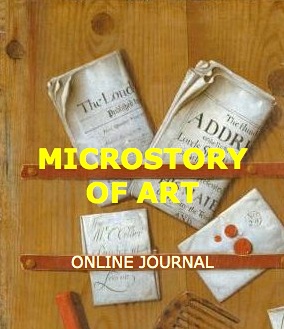
***
ARCHIVE AND FURTHER PROJECTS
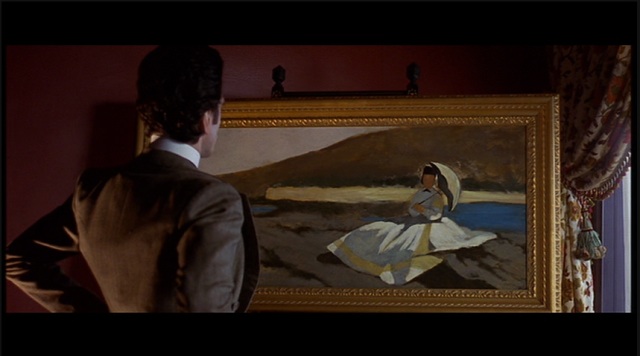
1) PRINT


***
2) E-PRODUCTIONS
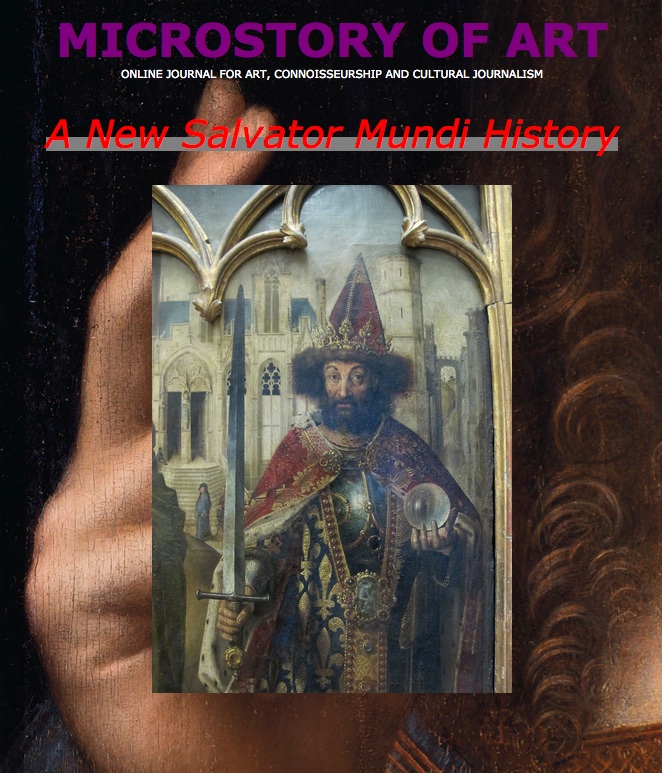
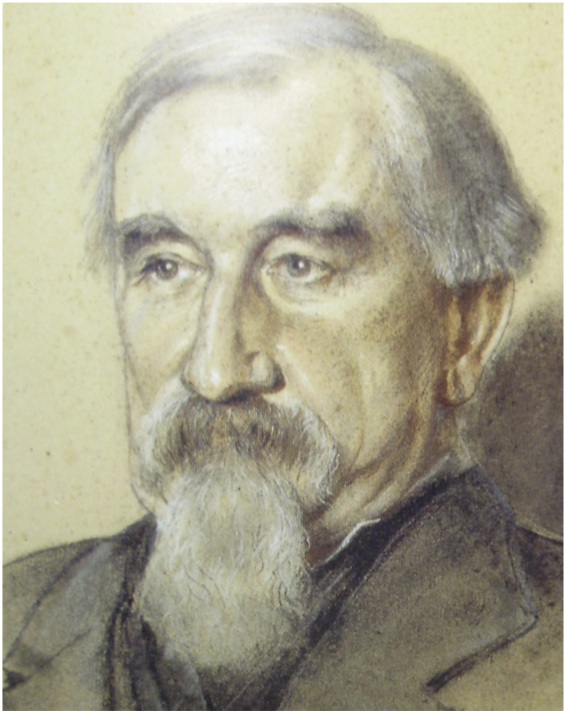
........................................................

........................................................
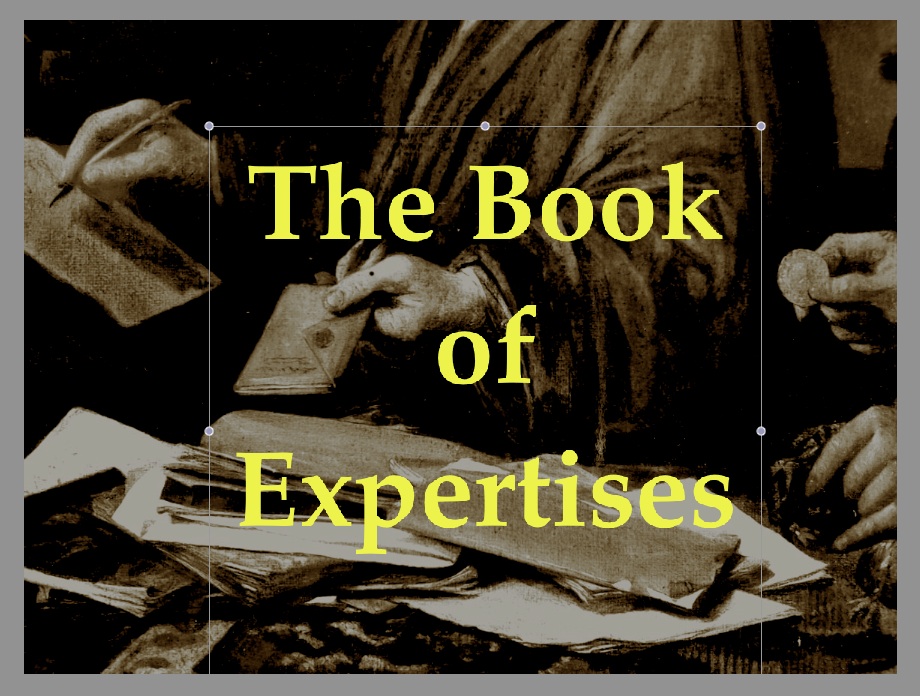
........................................................
FORTHCOMING:
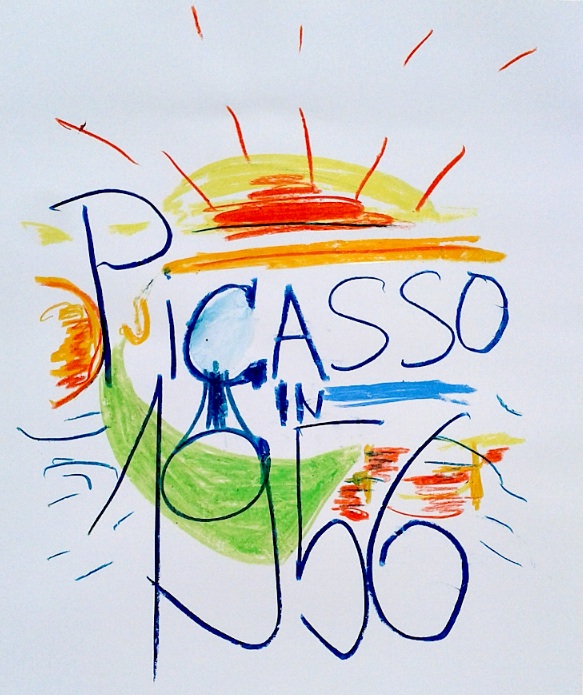
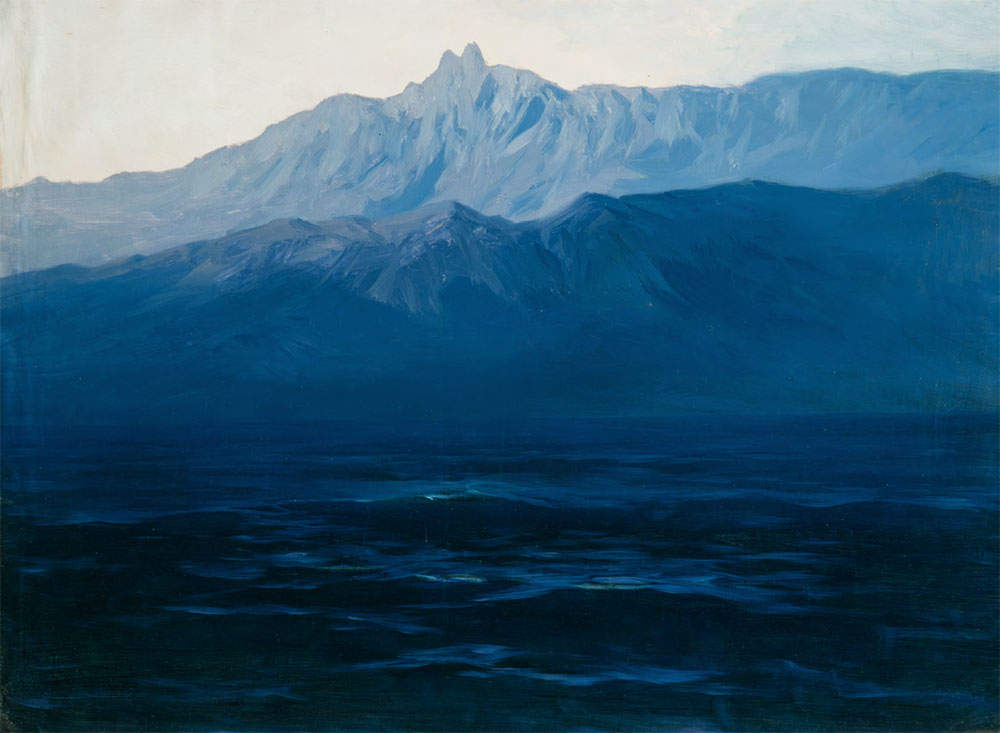
***
3) VARIA

........................................................

........................................................
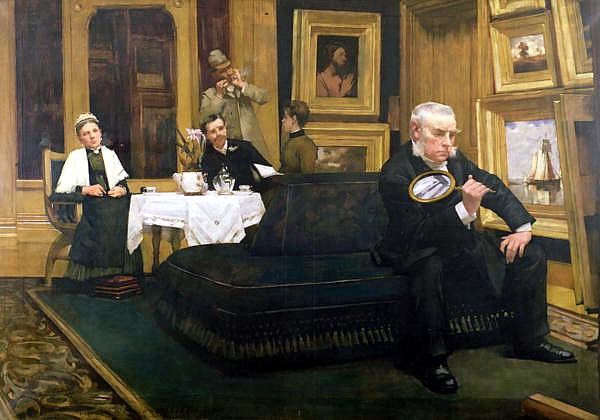
........................................................

........................................................
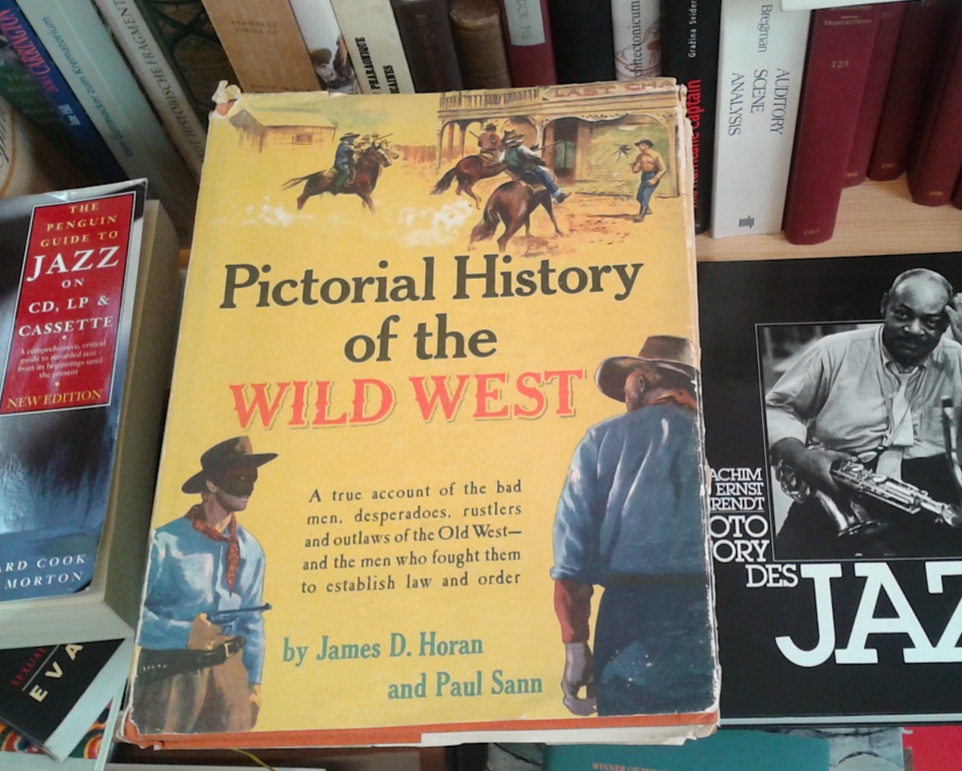
........................................................
***
THE GIOVANNI MORELLI MONOGRAPH

- The Giovanni Morelli Monograph
........................................................
MICROSTORY OF ART
ONLINE JOURNAL FOR ART, CONNOISSEURSHIP AND CULTURAL JOURNALISM
HOME
Shostakovich on Picasso

(Picture: Deutsche Fotothek; Shostakovich in 1950)
(22.12.2022) It is known only since the 1990s that composer Dmitri Shostakovich, in 1956, referred to Pablo Picasso as »vermin«. Another translation has »viper« instead of »vermin«. And if taken out of context (the context is a memoir by a friend of Shostakovich, namely by Flora Litvinova), one might think that this testimony could be reduced to Shostakovich simply expressing the view that Picasso, as a supporter of communism and, indirectly, the Soviet system, did know better, and that, as Shostakovich also seems to have said, Picasso was simply telling lies. But the testimony by Litvinova is more complex and much more valuable, since, actually, it does teach us much as to the controversial views in the Soviet Union, in 1956, as to Picasso.
Selected Literature:
Elizabeth Wilson, Shostakovich. A Life Remembered, London 2011;
Travis Elborough, Letters to Change the World. From Pankhurst to Orwell, London 2018;
James Lord, Picasso und Dora Maar, Frankfurt a.M 1998

(Picture: Argentina)
One) »Vermin« or »Viper«?
The memoir by Flora Litvinova, a text that was also largely published in the Soviet Union, in 1996, had been prompted by the musician and author Elizabeth Wilson, who, in 1994, published her book Shostakovich. A Life Remembered for the first time (various editions since then). The book comprises large excerpts from the Litvinova memoir, including a long passage, in which Litvinova is drawing (as she says) from her own diary, and which gives an account of a visit at Shostakovich on October 26, 1956, including the conversation with the composer. Those authors who give as translation »viper« instead of »vermin« are authors seemingly drawing on the Russian publication of the memoir (in the journal Znamya in 1996). Shostakovich scholarship is controversial, but we are drawing here on Wilson, and the passage referring to Picasso seems not to be affected by the controversies in Shostakovich scholarship. Nuances of translation may be discussed by specialists:
»Misha and I [Flora Litvinova and her husband] spoke of a film, where Picasso was shown painting a picture before our very eyes. Shostakovich said that he understood nothing about visual art. We were full of our impressions of the Picasso exhibition in Moscow. People had reacted excitedly to it, both young and old, and it provoked much argument and waving of hands. The majority of people were seeing such art for the first time.
Suddenly Dmitri Dmitriyevich burst out, ›Don’t speak to me of him, he’s a bastard.‹
We were stunned.
›Yes, Picasso, that bastard, hails Soviet power and our communist system at a time when his followers here are persecuted, hounded, and not allowed to work.‹
I interjected, ›But your followers are also hounded and persecuted.‹
›Well, yes, I too am a bastard, coward and so on, but I’m living in a prison. You can understand that I’m living in a prison, and that I am frightened for my children and for myself. But he’s living in freedom, he doesn’t have to tell lies. I am now being invited by all countries of the world to travel, but I’m not accepting, and I don’t intend to travel anywhere until I can speak the truth, until I can answer the question as to what I really think about the Central Committee’s ›historic‹ Decree. And Picasso, who’s forced him to speak out? All those Hewlett Johnsons, Picassos, and Joliet-Curie [Joliot-Curie], they’re all vermin. They live in a world which no doubt has its problems, but they are free to speak the truth and to work, and they can do what their conscience dictates. And Picasso’s revolting dove of peace! How I hate it! I despise the slavery of ideas as much as I despise physical slavery.‹
Misha and I tried to explain that Picasso probably didn’t know what was going on in our country, and that he and others like him no doubt thought that our artists enjoyed being ›socialist-realists‹, painting like Gerasimov. We pointed out that Picasso probably backed the idea of communism in general, as indeed did we. ›And you, too, Dmitri Dmitriyevich, are for the ideas of communism.‹
He answered, ›No, communism is impossible. But let Picasso be, I don’t want to talk about him any more.« (Wilson, p. 366f.)
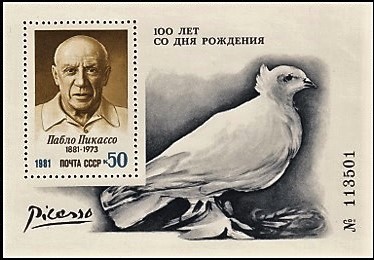
(Picture: Post of Soviet Union)
Two) Cold Contemptuous Grief
When I first encountered the »vermin«/»viper« passage in other books (not in Picasso scholarship, where it does seem to be unknown), where the passage was taken out of its 1956 context, I had supposed that Shostakovich might have spoken to his friend in c. 1950, when the International Stalin Prize for Strengthening Peace Among Peoples (later renamed as Lenin Peace Prize; Picasso got it in 1962) was awarded to Hewlett Johnson and Joliot-Curie, and when Picasso had appeared on the scene of the (Soviet backed) peace movement, which he kept on to support. I had understood the statement by Shostakovich as simply saying that Picasso, in his view, knew better (which I doubt). But as the passage, quoted in full, does show, in conversation with Litvinova and her husband, Shostakovich was immediatedly contradicted by lively alternative (Soviet communist) voices, and the composer might also be understood as simply expressing anger and frustration (as well as he could be understood as saying that Picasso was repeating the lies of others, so that it was not actually Picasso who was lying). As Litvinova did suppose, Picasso was not aware of what the real circumstances were in the Soviet Union (but Picasso was better informed than she thought, however, not as to the system of the Gulag or as to all of Stalin’s crimes), which might be interpreted as saying: Picasso could not really know better, but at least he does support communism as do we (and indeed Picasso did also hope for a better future of communism and for the ›Revolution‹ to continue, at least in the Global South).
Shostakovich is known to have expressed cold contemptuous grief also abroad (as for example the scholar Hans Mayer did remember), when the composer saw himself confronted (as for example on occasion of the 1950 Bach bicentennial in Eastern Germany) with Stalinist propaganda. And this contempt was also observed in Ilya Ehrenburg, who, however, did spare his friend Picasso of such contempt (somehow excusing that Picasso, actually, supported a Stalin backed peace movement, in which, he, Ehrenburg, served, willingly/unwillingly, as a propagandist; and Ehrenburg seems to have had also contempt for himself and for the role he had or the privileges he did enjoy due to that role, as seems to have had Shostakovich; see above).
Three) A Typology of Picasso Criticism
In 1956 Picasso was facing criticism coming from all sides, which makes it interesting to distinguish various types of Picasso criticism.
We may think of a grid that distinguishes the ›you do know better, liar!‹ message from the ›you could know better, since you are living in a free society!‹ message, and the ›you have to know better now, after the Hungarian Uprising, and consequently quit the French Communist Party!‹ message.
Polish-american poet Czesław Miłosz published an open letter to Picasso in June (republished in Elborough 2018). And author James Lord, who, at times, did belong to Picasso’s entourage, published another one in the fall, when also the letter by Czesław Miłosz was republished (see Lord 1998, p. 360ff., for his letter).
Picasso, as we have seen, did actually correct his stance as to Stalin publicly, but did not quit the party. What he knew and when of the circumstances in the Soviet Union, we also have begun to clarify. The year of 1956 is the one year that serves as a prism of who knew when and what, and as to what did follow or not follow as an insight. Rhetoric has to be studied, as well as actions; what happened in silence as well as what happened on the public stage. This process, at least as to Picasso scholarship, has begun only just now, since Picasso biographers, then, were all-too close to the painter, and chose, in tendency, only to observe and to say very little. In tendency they did spare Picasso the questions raised here, and this Picasso scholarship cannot allow itself anymore.
MICROSTORY OF ART
ONLINE JOURNAL FOR ART, CONNOISSEURSHIP AND CULTURAL JOURNALISM
HOME
© DS